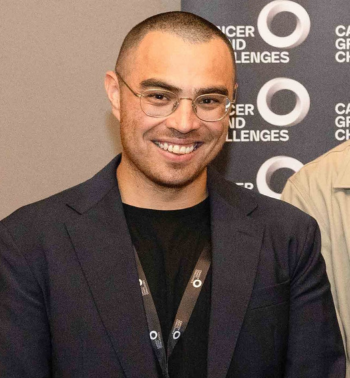18 November 2025
What is your role?
I am a Postdoctoral Research Associate in Computational Immunology and I lead the computational research in the laboratories of Prof Sheeba Irshad (Breast Immunology) and Dr Piers Patten (Lymphoma Biology). My research applies multi-omic approaches to investigate tumour-immune microenvironments and treatment resistance within breast cancer and indolent lymphomas including follicular lymphoma and chronic lymphocytic leukaemia.
I am interested in the application of computational techniques to investigate mechanisms of tumour-immune crosstalk within these different cancers and leveraging such information for patient stratification, biomarker identification and the design of next generation therapeutics.
What do you enjoy most about your role?
I enjoy combining my passions for immunology and data science, using advanced computational methods to tackle complex immunological questions. I’m motivated by the ultimate goal of improving patient outcomes and I am particularly driven by work that seeks to understand and address cancer inequities.
Another aspect of my role that I enjoy is being able to work with diverse and multi-disciplinary teams. Being able to learn from daily interactions with clinicians (who are seeing the patients who donate material for research), translational research teams, laboratory staff and expert researchers etc is fascinating.
I also feel privileged to be able to help train and supervise MRes / medical / PhD students and junior members of staff during their research. Being able to in any way contribute to their development is rewarding.
What inspired you to get into this work?
My first degree was in Computer Forensics which I was not passionate about. During this period I became very interested in medicine and thus - given my computational background - did a MSc in Bioinformatics with Systems Biology at Birkbeck. One of the last taught lectures was ‘Immunology 101’ and during that lecture I realised that Immunology was what I wanted work on. A PhD in mathematical immunology followed with Mark Coles at Oxford and Jon Timmis (now Aberystwyth).
What are the benefits of your work for staff, students, and patients?
As well as day to day research, my work generates computational tools and algorithms etc that support other researchers and my skillset contributes to multiple research programmes. I regularly help supervise students and I hope this provides training, skills and opportunities to contribute to research.
Ultimately, for patients, the insights gained into tumour–immune interactions aim to improve stratification, guide biomarker discovery and contribute to the development of more effective and equitable cancer therapies.
What would be your career top tips?
Choose a field about which you're highly passionate and that will help drive you though trials and tribulations. Everyone knows something that you don’t, so learn from others. Team science, collaboration, and diversity is the way to thrive.





